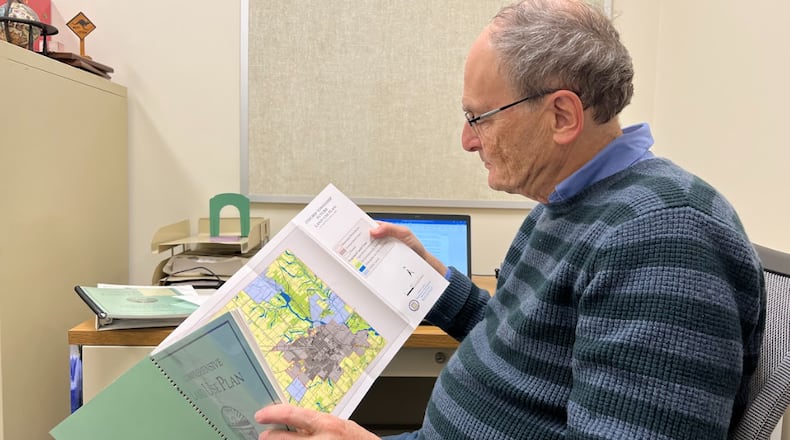In 2008, he chaired the committee tasked with creating the township’s land use plan, a document outlining methods to preserve the area’s rural character while allowing environmentally sensitive development. When it came time to update that document in 2015, he chaired the committee again.
Now, Rubenstein is back once more as the township renews its land use plan.
Rubenstein is a professor emeritus of geography at Miami University, and he used to chair the Butler County Planning Commission. As Oxford Twp. develops its new land use plan, it will work with both the City of Oxford and Butler County itself.
“The county and the city have both pledged their support for whatever materials we need,” Rubenstein said. “Legally, [the plan] has to be approved by the county ultimately … and the maps, these color maps and so on, will be created at the county level.”
Having a solid land use plan is essential to preserving the township’s qualities and regulating acceptable economic and residential developments. This fall, for example, when one person tried to turn an old military base into a haunted house, the project couldn’t go forward because the land use plan had the area zoned for agricultural use.Interested residents should reach out to Norma Pennock, board president, at npennock@oxfordtwpohio.org to put their name in by Monday, Nov. 13.
The Oxford Twp. Board of Trustees is aiming to create a committee that reflects the makeup of the township itself to help in the process. Interested residents should reach out to Norma Pennock, board president, at npennock@oxfordtwpohio.org to put their name in by Monday, Nov. 13.
So far, Pennock said about half a dozen people have reached out to her to participate, and the trustees will discuss the committee at the Nov. 16 meeting in the Oxford Township Police Station. She said the goal is to have a variety of people on the committee, from farmers to residents of more densely populated neighborhoods in the township.
“We really want to create a committee that, as best we can manage it, will represent the various component parts that make up the unincorporated township,” Pennock said.
A land use plan can do everything from preserving scenic views to controlling the density of housing, Rubenstein said. In the 15 years since the township’s original plan was written, Rubenstein said the planning profession has shifted strongly toward sustainability, which could be a more prominent feature in the new plan.
Pennock agreed that the shifting focus toward sustainable initiatives has been one of the biggest changes since 2015, the last time the plan was updated.
“Emphasis on green energy, renewable energy, that’s something that was barely on the horizon 10 years ago,” Pennock said. “It certainly is in everybody’s minds these days, so that’s a possibility for discussion.”
As Oxford Twp. works toward a start date of January 2024 for the committee to get to work, Pennock said her hope is to get robust engagement in the process from the whole community. In 2008, nearly 100 people offered their feedback on the land use plan through public input sessions as it was being formed.
“The more things that occur in the sunlight, the better … The city holds meetings for public input which sometimes don’t get that kind of turnout,” Pennock said. “We can only hope to get that kind of interest and attention this time around.”
About the Author
